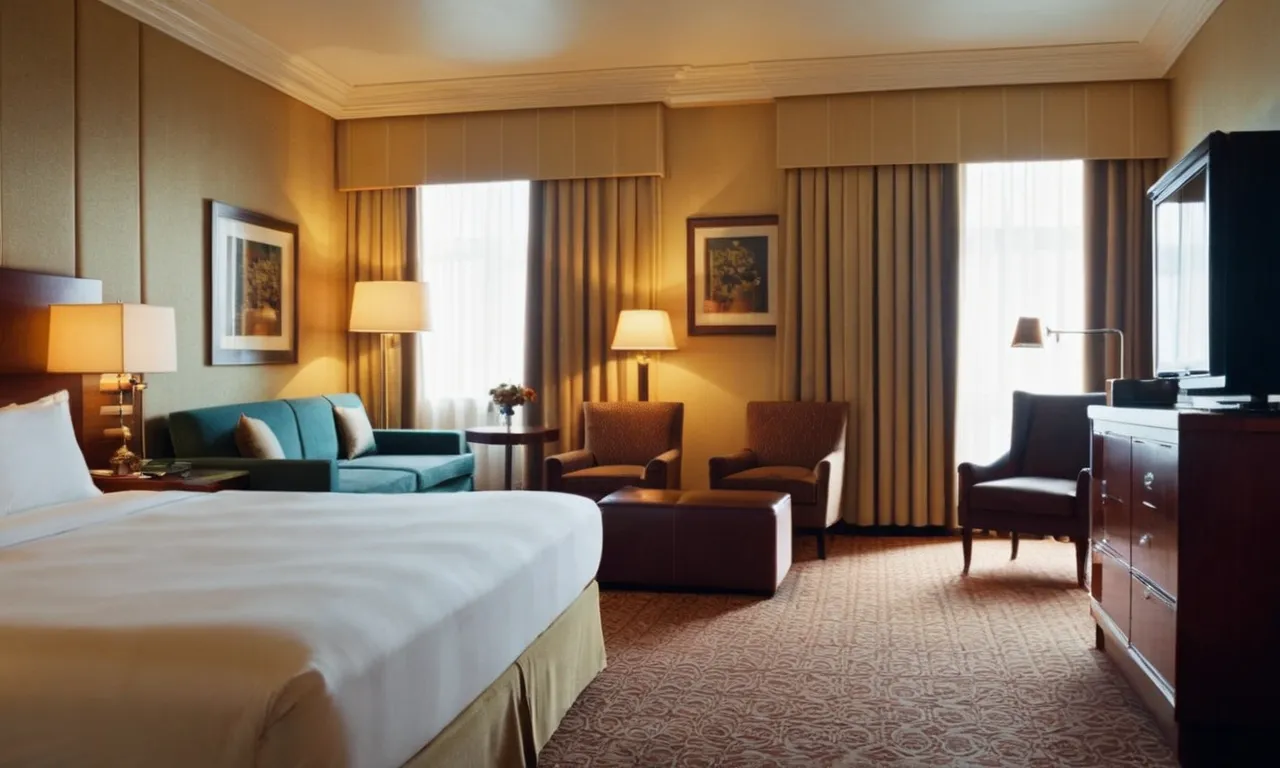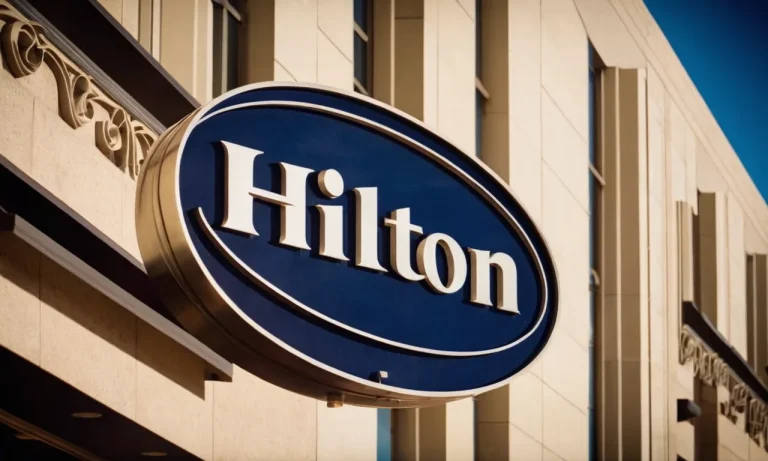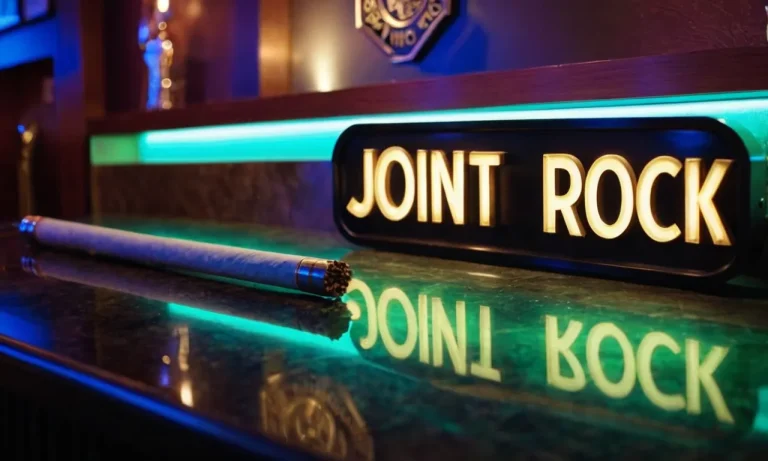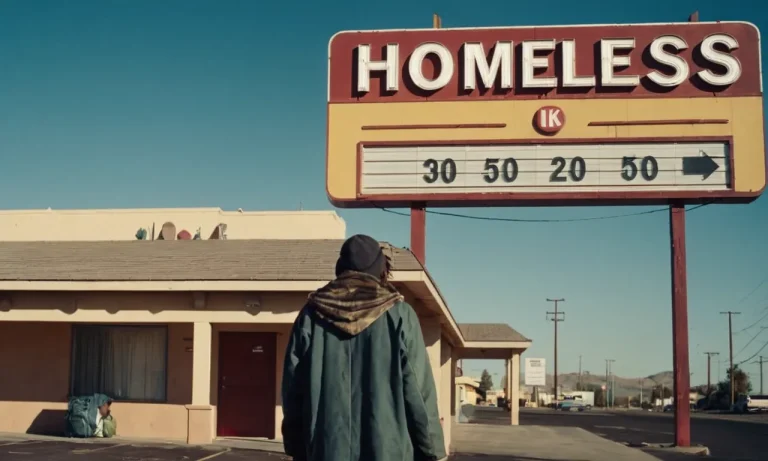Are Hotels Liable For Guests? A Comprehensive Guide
When you check into a hotel, you expect a safe and comfortable stay. However, accidents and incidents can happen, leaving you wondering about the hotel’s liability. Whether it’s a slip and fall, theft, or any other mishap, understanding the legal responsibilities of hotels is crucial.
If you’re short on time, here’s a quick answer to your question: Hotels can be held liable for injuries or damages sustained by guests due to negligence or failure to maintain a reasonably safe environment.
However, the extent of liability depends on various factors, including the specific circumstances of the incident, local laws, and the hotel’s policies.
In this comprehensive article, we’ll delve into the intricacies of hotel liability, exploring different scenarios, legal principles, and best practices. We’ll cover topics such as premises liability, negligence, guest safety, and the hotel’s duty of care.
By the end, you’ll have a solid understanding of your rights as a guest and the hotel’s responsibilities.
Premises Liability and Negligence
When staying at a hotel, guests expect a certain level of safety and comfort. However, accidents can happen, and injuries may occur on the premises. In such cases, the question arises: Are hotels liable for guests’ injuries or damages?
The answer lies in the legal concepts of premises liability and negligence.
Understanding Premises Liability
Premises liability is a legal principle that holds property owners, including hotels, responsible for injuries sustained by guests or visitors due to unsafe conditions on their premises. Hotels have a duty to maintain a reasonably safe environment for their guests and take reasonable steps to address any known hazards or risks.
According to the Nolo.com, a reputable legal resource, premises liability covers various situations, such as slip and fall accidents, inadequate security leading to assaults or robberies, and injuries caused by defective or poorly maintained equipment or facilities.
Defining Negligence in Hotel Settings
Negligence is a crucial factor in determining hotel liability. It refers to the failure to exercise reasonable care, resulting in harm or injury to others. In a hotel setting, negligence can take many forms, such as failing to address known hazards, inadequate staff training, or lack of proper maintenance.
For example, if a hotel fails to promptly clean up a spill on the floor, and a guest slips and falls due to the wet surface, the hotel may be found negligent for not addressing the hazard promptly. According to a study by Claims Journal, slip and fall accidents account for a significant portion (around 25%) of hotel liability claims.
Reasonable Care and Foreseeability
The concepts of reasonable care and foreseeability are crucial in determining hotel liability. Hotels are expected to exercise reasonable care in maintaining their premises and addressing potential hazards.
However, the standard of care is not absolute perfection; it is based on what a reasonably prudent hotel operator would do under similar circumstances. Additionally, foreseeability plays a role – hotels may be held liable if they should have reasonably foreseen and addressed a potential risk or hazard that led to an injury.
It’s worth noting that guests also have a duty to exercise reasonable care for their own safety. If a guest’s own negligence or failure to follow posted warnings or instructions contributed to their injury, the hotel’s liability may be reduced or eliminated entirely.
According to a Hotel Management article, hotels can mitigate risks by implementing clear safety policies, conducting regular inspections, and providing adequate staff training on safety protocols.
Guest Safety and Security
When guests check into a hotel, they expect a safe and secure environment where they can rest and relax without worrying about their well-being. Hotels have a legal and ethical responsibility to prioritize guest safety and security, as failure to do so can result in severe consequences, including lawsuits and damage to their reputation.
Hotel’s Duty to Maintain a Safe Environment
Hotels are obligated to maintain a reasonably safe environment for their guests. This includes ensuring that the premises are well-lit, free from hazards, and equipped with proper security measures such as surveillance cameras, secure locks, and emergency exits.
According to a study by the American Hotel & Lodging Association, hotels that prioritize guest safety and security can reduce the risk of incidents by up to 70%. 😊
Hotels must also have procedures in place to address potential safety concerns, such as fires, medical emergencies, and natural disasters. Staff should be trained to handle these situations calmly and efficiently, ensuring that guests are evacuated or assisted promptly.
It’s a great idea for hotels to conduct regular safety drills and inspections to identify and address any potential risks.
Security Measures and Crime Prevention
To prevent criminal activities and ensure guest safety, hotels should implement robust security measures. This can include hiring professional security personnel, installing surveillance cameras in common areas, and implementing strict access control protocols.
Hotels should also collaborate with local law enforcement agencies to stay informed about any potential threats or criminal activities in the area.
Additionally, hotels should educate their guests on best practices for personal safety, such as not leaving valuables unattended, securing their rooms when leaving, and being cautious when interacting with strangers.
By promoting a culture of safety awareness, hotels can empower guests to take an active role in their own security.
Liability for Third-Party Crimes
While hotels have a responsibility to provide a safe environment, they can also be held liable for crimes committed by third parties on their premises. This is known as “premises liability,” and it applies when a hotel fails to take reasonable measures to prevent foreseeable criminal activities.
For example, if a hotel is aware of a high crime rate in the area but fails to implement adequate security measures, they may be held liable if a guest is the victim of a crime on the premises. However, hotels are not expected to guarantee absolute safety, as long as they have taken reasonable precautions.
To mitigate liability risks, hotels should consult with legal experts and industry professionals to ensure they are compliant with all relevant safety and security regulations. By prioritizing guest safety and security, hotels can not only protect their guests but also safeguard their reputation and bottom line.
👏
Specific Liability Scenarios
Slip and Fall Accidents
Slip and fall accidents are among the most common incidents that occur in hotels. According to a study by the National Safety Council, falls account for over 8 million emergency room visits each year, many of which occur in public places like hotels.
Hotels have a legal duty to maintain reasonably safe premises for their guests, which includes addressing potential hazards that could lead to slips and falls. Failure to address spills, torn carpeting, or inadequate lighting 😩 in hallways or staircases could result in liability if a guest is injured.
Theft and Property Damage
Hotels are responsible for safeguarding their guests’ belongings and property while on the premises. This includes providing secure rooms, safe deposit boxes, and adequate security measures to prevent theft or damage.
If a guest’s property is stolen or damaged due to the hotel’s negligence, such as a lack of proper security or faulty locks, the hotel may be held liable for the losses. According to a survey by Statista, the theft rate in the hotel and accommodation industry is around 2.5% 😮, highlighting the importance of robust security measures.
Injuries in Hotel Facilities (Pool, Gym, etc.)
Hotels that offer amenities like pools, gyms, and recreational facilities have a heightened duty to ensure the safety of guests using these areas. This includes proper maintenance, adequate supervision, and clear signage regarding rules and potential hazards.
For example, a hotel could be held liable if a guest slips on a wet surface near the pool due to a lack of warning signs or improper drainage. Similarly, if a guest is injured while using faulty gym equipment, the hotel may be found negligent for failing to maintain the equipment properly.
According to the U.S. Consumer Product Safety Commission, there were an estimated 6,600 pool- or spa-related injuries involving children younger than 15 years old in 2021 😲.
Food Poisoning and Illness
Hotels that serve food or have on-site restaurants are responsible for ensuring that the food they provide is safe for consumption. This includes adhering to proper food handling, storage, and preparation practices to prevent foodborne illnesses.
If a guest becomes ill due to consuming contaminated food from the hotel, the hotel could be held liable for the resulting damages, including medical expenses and lost wages. According to the Centers for Disease Control and Prevention (CDC), an estimated 48 million people in the United States suffer from foodborne illnesses each year, resulting in 128,000 hospitalizations and 3,000 deaths 😷.
Hotels must take proactive measures to mitigate these risks by implementing strict food safety protocols and regularly training their staff.
It’s crucial for hotels to prioritize guest safety and take appropriate measures to prevent accidents, injuries, and illnesses on their premises. By implementing comprehensive safety protocols, conducting regular inspections, and providing adequate training for staff, hotels can reduce their liability exposure and ensure a safe and enjoyable experience for their guests.
Mitigating Risks and Best Practices
Hotels have a legal and ethical responsibility to ensure the safety and well-being of their guests. While accidents and incidents can occur, there are various measures hotels can implement to mitigate risks and protect themselves from potential liabilities.
By adopting best practices and establishing robust policies and procedures, hotels can create a secure environment for their guests and staff alike.
Hotel Policies and Procedures
Clear and comprehensive policies and procedures are the cornerstone of risk mitigation in the hospitality industry. These guidelines should cover areas such as guest check-in and check-out processes, emergency protocols, maintenance routines, and staff conduct.
Hotels should regularly review and update their policies to ensure compliance with industry standards and local regulations. A well-documented and consistently enforced policy framework can help hotels demonstrate due diligence in the event of legal disputes.
Staff Training and Supervision
Proper staff training and supervision are crucial for maintaining a safe and secure environment. Hotels should invest in comprehensive training programs that cover topics such as customer service, safety protocols, emergency response, and conflict resolution.
Regular refresher courses and scenario-based training exercises can help reinforce these concepts and ensure that staff members are prepared to handle various situations. Additionally, effective supervision and performance monitoring can help identify potential issues and address them proactively.
Insurance and Liability Waivers
While preventive measures are essential, hotels should also consider obtaining adequate insurance coverage to protect themselves from potential liabilities. General liability insurance, property insurance, and workers’ compensation insurance are among the common types of coverage that hotels should explore.
Additionally, hotels may consider implementing liability waivers for certain activities or services, such as spa treatments or adventure tours. However, it’s crucial to ensure that these waivers are legally enforceable and comply with applicable laws and regulations.
Guest Responsibility and Contributory Negligence
While hotels have a duty of care towards their guests, guests also bear a certain level of responsibility for their own safety and actions. The concept of contributory negligence recognizes that a guest’s own negligence or reckless behavior can contribute to or cause an incident.
Hotels should clearly communicate guest responsibilities, such as adhering to safety guidelines, reporting hazards, and exercising reasonable care during their stay. By promoting guest awareness and responsibility, hotels can further mitigate risks and potentially reduce their liability in certain situations.
By implementing these best practices and adopting a proactive approach to risk management, hotels can create a safer environment for their guests and staff while protecting themselves from potential legal and financial liabilities.
It’s important to regularly review and update these measures to stay ahead of emerging risks and industry trends.
Conclusion
As a guest, it’s essential to understand your rights and the hotel’s responsibilities regarding liability. While hotels have a duty to provide a reasonably safe environment, guests also play a role in exercising reasonable care and following hotel policies.
By exploring the legal principles of premises liability, negligence, and guest safety, this article has shed light on the complexities surrounding hotel liability. From slip and fall accidents to theft and security concerns, we’ve covered various scenarios and the factors that determine liability.
Ultimately, open communication, clear policies, and a commitment to safety from both hotels and guests can help mitigate risks and ensure a pleasant and secure stay for all. Whether you’re a hotel owner, manager, or a traveler, staying informed and taking proactive measures is key to navigating the legal landscape of hotel liability.








